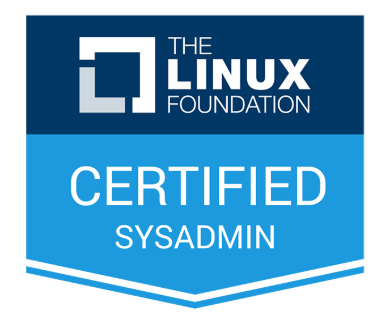
I originally took the LFCS exam back in 2018, along with the LFCE, while working as a VMware and storage admin. I was heavily involved with CentOS 5, 6, and 7 at the time.
After moving on from that role, my hands-on Linux experience became minimal, mostly limited to checking logs or performing basic tasks. However, with a job change on the horizon, I wanted to refresh my Linux skills and decided to renew my LFCS certification.
How the LFCS Exam Has Changed
The exam has evolved significantly since I first took it. It’s now vendor-agnostic, meaning you can’t choose between distributions like Ubuntu or CentOS anymore. Instead, the choice of tools and approaches is up to you. For example, I initially planned to use firewall-cmd for firewall tasks but quickly pivoted to iptables when I realized the exam’s flexibility.
New topics have also been added, such as GIT and Docker basics. The core areas like LVM, cron, NTP, user management, SSH, resource limits, certificates, and command-line utilities like find are still part of the exam.
My Exam Strategy and Experience
I missed one question during the exam because I got stuck and decided to skip it. With about 20 minutes left, I revisited it but ultimately decided to call it a day. Honestly, in a real-world scenario, I would have used Google to find a solution.
Study Resources I Used
I leaned on a mix of resources to prepare for the exam:
KodeKloud
- Their LFCS course and Kubernetes materials are quite comprehensive.
- The mock exams are helpful, although their labs can occasionally be inconsistent.
- The forum support is solid if you encounter issues.
- KodeKloud’s focus is more on Ubuntu, which aligned well with the exam’s vendor-neutral approach.
Zander’s Training
- Zander’s training has been a favorite of mine since 2018. His videos are concise and task-focused.
- He provides a hands-on approach: giving you tasks to do in your lab and then walking you through his solution.
- While Zander leans towards CentOS with some Ubuntu coverage, his training emphasizes understanding concepts rather than relying on distribution-specific tools.
- If I had to choose, I’d prioritize Zander’s training, but KodeKloud’s interactive labs make a great complement.
Killer.sh Labs
As part of the Cyber Monday deal for the LFCS exam, I got access to the Killer.sh labs. These labs were an eye-opener. My first attempt resulted in a score of 35/75 due to poor time management and spending too long reading through man pages, even after all my prior training.
Over the 36-hour window for each lab attempt, I worked through the questions repeatedly and significantly improved my speed. The Killer.sh labs are tougher than the actual exam, so if you can handle those, you’re in good shape.
Tips and Observations
- Exam Tools and Resources:
- Installing
tldrduring the exam was helpful for quickly checking command syntax, though it required some troubleshooting to get it working. - Many people suggested
curl cheat.shas a resource. While it’s fantastic for real-world use, it didn’t feel practical or aligned with the exam guidelines.
- Installing
- Lab Scoring Issues:
- KodeKloud’s labs occasionally penalized valid answers. For example:
- Using
chronyfor NTP configuration instead ofsystemd-timesyncdresulted in zero marks in one scenario, even though both are correct solutions. - Using
mon,thuincrontabinstead of1,4also got marked down, despite both being valid formats.
- Using
- KodeKloud’s labs occasionally penalized valid answers. For example:
- Time Management:
- Managing time effectively is critical. Practice navigating tools and finding information quickly, especially in Killer.sh labs.
- Real-World Practices:
- The exam doesn’t allow external resources like Google, but tools like
tldrcan bridge that gap. - For day-to-day Linux work, resources like
curl cheat.share excellent for quick references.
- The exam doesn’t allow external resources like Google, but tools like
Final Thoughts
The LFCS exam has certainly adapted to the changing landscape of Linux and open-source technologies. Whether you’re a seasoned professional looking to refresh your skills or a newcomer to Linux, preparing with the right resources and strategies is key to passing the exam.
Good luck to anyone preparing for it and I hope my experience and tips help you along the way!



Leave a Reply